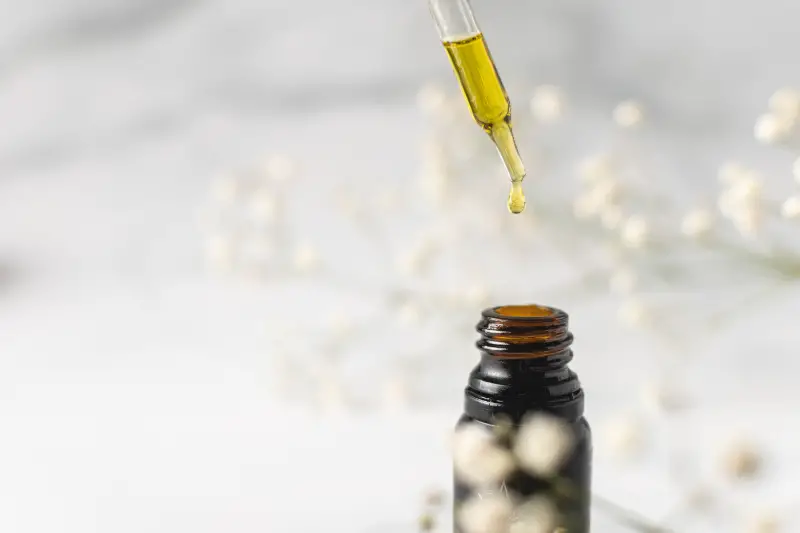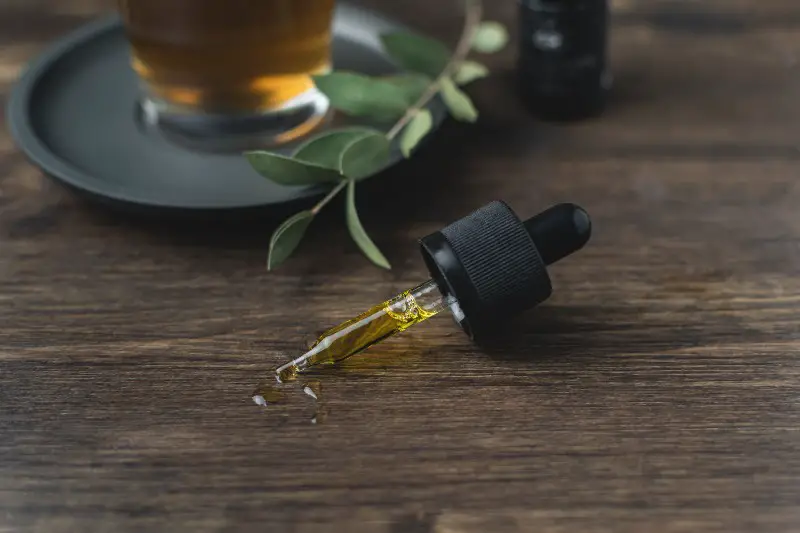PTSD (Post-traumatic Stress Disorder) is a condition that is characterized by repeated flashbacks of traumatic events.
During these flashbacks, you may experience intense feelings of fear, anger, anxiety and numbness. There are many different treatments for PTSD that work differently for each person. These treatments may include a variety of different medications. These medications can have different side effects and interact with other medications that you may be taking.
Serotonin Levels in the Brain
Various research groups are exploring the connection between serotonin levels in the brain and post-traumatic stress disorder. Serotonin is a natural chemical that is involved in many physical and psychological functions. However, experts are still unsure of how it works. SSRIs (selective serotonin reuptake inhibitors) have been shown to help many people with depression.
Serotonin levels in the brain are estimated to vary between 101 and 283 nanograms per milliliter of blood. It is believed to be produced by the body through the process of tryptophan hydroxylase. It then passes messages between nerve cells. CBD has been shown to influence the levels of serotonin in the brain and has been shown to help with PTSD symptoms.
Researchers at Uppsala University studied the brain and serotonin levels. The study was conducted in mice. They gave mice 10 mg/kg of CBD I.P.. After the administration of CBD, blood samples were collected. Then, imaging data were analyzed.
The researchers discovered that CBD increased blood flow in the cingulate cortex. However, it decreased activation in the amygdala and anterior cingulate. These changes in activation were found to be statistically significant at 10 minutes post injection.
The researchers then studied the effects of CBD on the brain lipidome. The results of the study showed that CBD increases anandamide and other related lipids in the CNS.
The researchers also studied the effects of CBD on the CB1 receptors. These receptors are found throughout the body, but they are concentrated in the brain. They are responsible for the biosynthesis of lipid signaling molecules.
The researchers also found that CBD affects brain connectivity. This was demonstrated in male and female mice. CBD reduced the activation of the amygdala and increased the activation of the prefrontal cortex.

Interactions with Medications
PTSD symptoms include: fatigue, depression, headaches, anxiety, and trouble focusing. It’s a chronic disorder that develops after trauma. In some cases, the disorder may be treated with counseling and pharmacological medication.
CBD, or cannabidiol, may be a promising treatment for PTSD. The substance has been shown to reduce stress, anxiety, and depression. But more research is needed to determine its effectiveness.
CBD is an effective treatment for an array of phobias. The substance can be taken orally or as topical drops.
CBD interacts with the endocannabinoid system to produce a number of benefits. It improves sleep patterns and may be helpful for stress management. In addition, it may help to reprogram the brain to overcome traumatic memories.
It’s also important to note that CBD may interfere with the metabolism of medications, particularly those that are CYP450-based. This can lead to adverse reactions and DDIs.
CBD can also interfere with certain liver enzymes. These enzymes are responsible for the metabolism of many medications. CBD may raise serum levels of medications and may interfere with hepatic transaminases.
CBD may increase the amount of warfarin in the blood. One study found that CBD can raise warfarin concentrations in a 37-year-old male with refractory epilepsy.
Despite its positive effects, CBD is not well studied when combined with other medications. It may interfere with the metabolism of tacrolimus, an immunosuppressive medication. This medication is used to prevent organ rejection in transplant patients.
Epidiolex, an oil-based substance produced by Greenwich Biosciences, is being studied in controlled clinical trials. It has shown some promise in treating opioid addiction. However, the FDA has not required a black box warning for Epidiolex.

Side Effects
PTSD is a chronic disorder that is characterized by re-experiencing traumatic events, hypersensitivity to certain stimuli, and avoidance. It is often accompanied by depression, fatigue, headaches, and trouble with concentration.
Cannabidiol (CBD) is a cannabinoid that may help people with PTSD. Studies indicate that this drug may be effective in treating the symptoms of PTSD without the negative side effects.
The endocannabinoid system (ECS) is a major regulator of emotional behavior. It contains receptors for CB1 and CB2. CBD targets these receptors. These receptors have been found in the brain, and are important for memory and anxiety regulation.
In a study of 11 people, CBD was found to be effective in treating PTSD symptoms. CBD lowered anxiety and prevented nightmares.
Another study found that CBD lowered cognitive impairment. CBD also enhanced plasticity of the hippocampus, which is responsible for memory and mood stability.
In addition, CBD may reduce anxiety and nightmares in patients with PTSD. The same study showed that patients who were given CBD showed 91% improvement in their symptoms.
The mechanism of CBD’s effect on anxiety is believed to be based on its ability to stimulate plasticity of the hippocampus.
CBD was also found to improve sleep in patients with PTSD. In a chart review, 72 psychiatric patients who received CBD showed a significant improvement in sleep time.
CBD also increases anandamide levels in the brain. When anandamide is low, people may experience increased stress. When anandamide levels are high, people are less stressed.
However, there are still many unanswered questions about the effects of CBD. It is important to discuss its use with a healthcare professional before taking it. It should also be used in conjunction with psychotherapy.
Symptoms of PTSD
PTSD is a serious mental health disorder that affects a wide range of people. It can lead to chronic challenges and detachment from others. It also can cause panic attacks. It can also lead to suicide.
PTSD can be caused by anything from witnessing a violent crime or war to experiencing a traumatic life event. While PTSD can affect anyone at any age, it is more common among people in the military and first responders.
CBD, on the other hand, has been shown to have anti-anxiety and stress-related effects. It may also help to increase levels of anandamide, the molecule responsible for promoting positive emotions. It is believed that increased levels of anandamide may reduce PTSD symptoms.
Another study has shown that CBD can reduce the levels of cortisol, the stress hormone. It can also reduce activity in the amygdala, a part of the brain that drives fear responses.
It may also interfere with the consolidation of aversive memories. It is also believed that it can help improve sleep, a common problem among PTSD patients.
PTSD can affect people of any age, gender, race, and social status. If you are experiencing any of these symptoms, you should consult a mental health professional or a doctor. If you are considering CBD, make sure you check the laws in your state before you buy it.
The latest research suggests that CBD may help improve sleep among PTSD patients. It may also reduce the production of cortisol, the stress hormone. There is also evidence that it may reduce the number of recurring nightmares.
CBD may not be the cure-all for PTSD, but it may be a promising option to consider. It may also help to talk about your symptoms and how to deal with them. You can also participate in support groups to help you deal with PTSD.
Treatment Options
PTSD is a mental health disorder that develops after a traumatic event. It is characterized by intense anxiety, avoidance, and fear responses. It can be extremely difficult to live with, and can impact your daily life. If you are experiencing symptoms, there are treatment options that can help. These include pharmacological medications and psychotherapy.
CBD has been shown to be effective in treating PTSD. It may help alleviate a number of symptoms, including insomnia, anxiety, and nightmares. However, it is not known exactly how it works, and research is still ongoing.
CBD works by activating the endocannabinoid (ECS) system, which is a part of the nervous system. ECS is involved in the regulation of many physiological processes, including memory and learning. It also suppresses negative memories, which may play a role in PTSD.
CBD is often used to treat insomnia, which can be a major contributing factor in PTSD. It has also been shown to help people sleep better and reduce anxiety and nightmares. Some patients have reported a decrease in REM sleep, a sleep stage that involves vivid dreams.
The ECS system is regulated by cytochrome P450, which is a chemical in the body that helps break down exogenous cannabinoids. Benzodiazepines are sometimes prescribed to treat short-term PTSD, but they are not recommended for long-term use.
CBD oil has also been shown to help reduce anxiety and sleeping problems in a child with PTSD. The oil is safe to use and generally well tolerated. However, you should always consult your doctor before taking CBD.
CBD has been shown to improve the blood flow to the brain, which can reduce anxiety and increase hormones and nutrients in the brain. It also may prevent nightmares, which are common with PTSD.
























